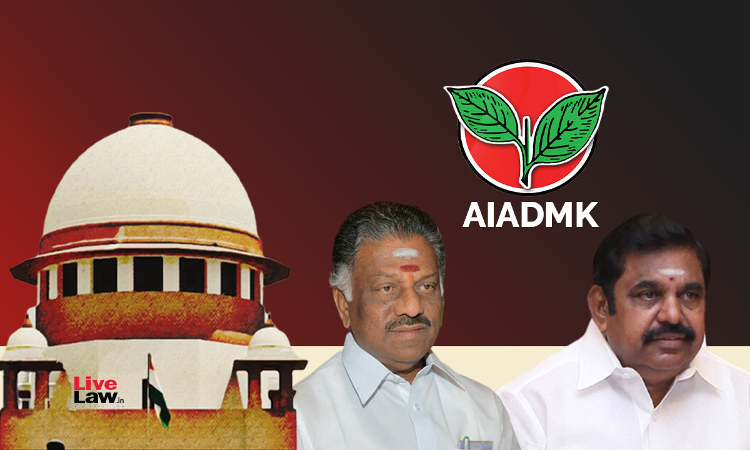AIADMK Leadership Rift : Supreme Court Reserves Judgement In O Paneerselvam's Plea
Rintu Mariam Biju
12 Jan 2023 10:33 AM IST

Next Story
12 Jan 2023 10:33 AM IST
On Wednesday, the Supreme Court of India reserved its judgment in a batch of pleas relating to the political tussle between the two factions of AIADMK - Edappadi Palaniswami (EPS)and AIADMK leader and former Tamil Nadu Chief Minister O. Panneerselvam (OPS) for leadership. A Division Bench of Justices Dinesh Maheswari and Hrishikesh Roy asked all the parties to their written submissions...
